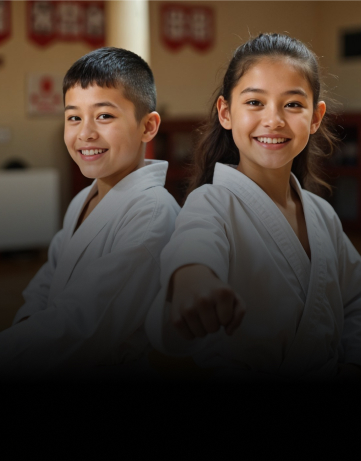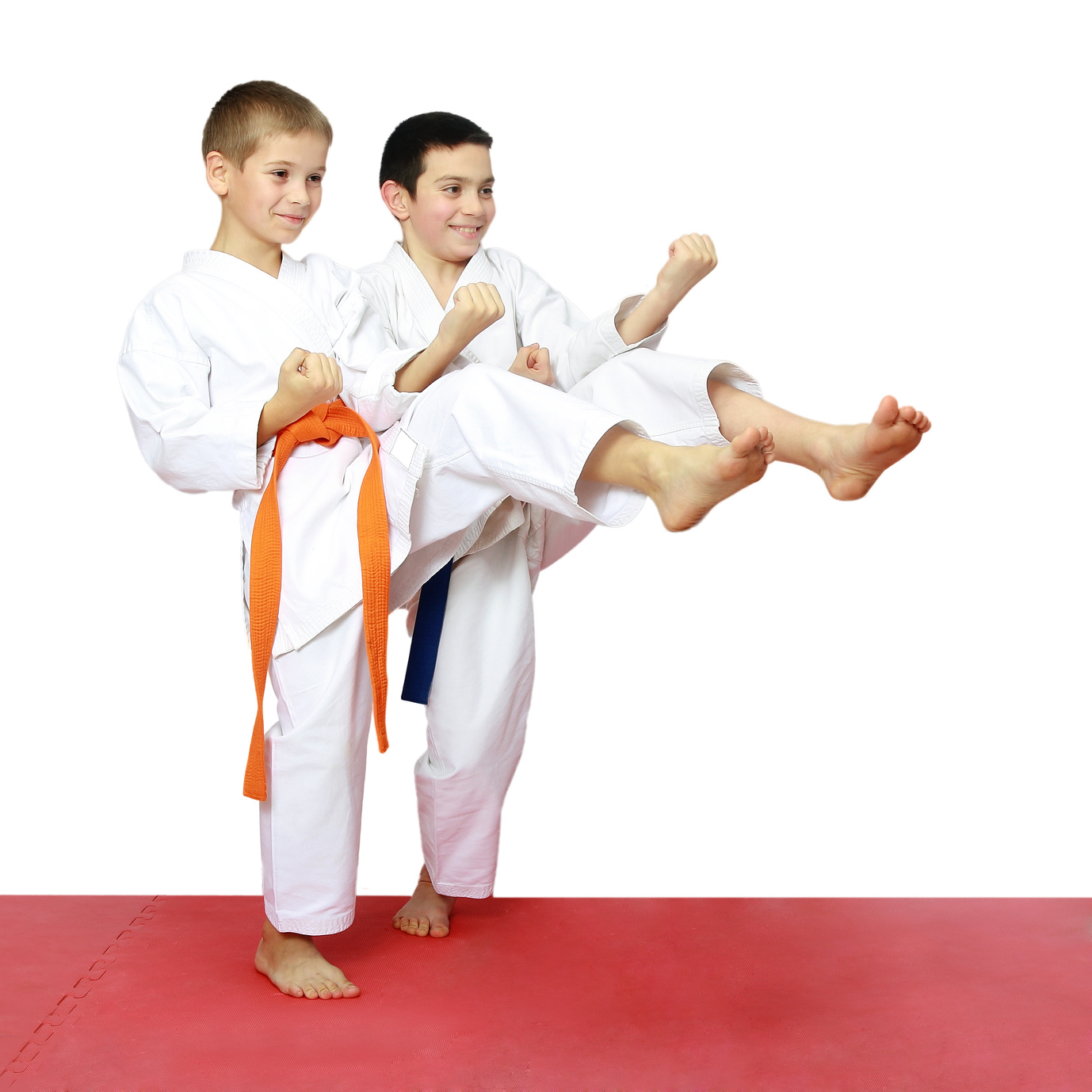How Karate for Children Can Boost Confidence and Technique in Young Martial Artists
Karate for youngsters supplies a distinct possibility to construct confidence and self-control in young martial musicians. As they find out new techniques and face difficulties, they not just obtain skills but likewise establish a solid feeling of self-regard. This structured environment motivates them to appreciate the trip of renovation. Exactly how does this training equate right into their day-to-day lives? Discover the much deeper connections that make karate more than just a sport.
The Significance of Confidence in Youth Advancement
Confidence is a necessary structure block in childhood years growth. When you support your youngster's self-worth, you encourage them to encounter obstacles, take threats, and reveal themselves easily. Youngsters with confidence are a lot more happy to check out new activities and social situations, which can bring about enduring friendships and important experiences.Encouraging your child to step out of their comfort area cultivates durability. They discover that failure isn't the end yet instead a tipping stone to success. By celebrating their success, regardless of exactly how little, you aid them acknowledge their capacities and worth.In this trip, assistance and favorable support from you play an important duty. Whether it's via praise or simply existing, your involvement improves their self-confidence. As they expand, this self-assurance becomes a lifelong possession, furnishing them to browse both challenges and possibilities with a solid feeling of self.
How Karate Shows Self-control and Emphasis
Martial arts helps you construct technique and emphasis via its structured training routine. As you exercise mindfulness during each session, you'll discover to focus far better both on and off the mat. Plus, setting and achieving objectives in karate strengthens your capability to remain mindful and fully commited.
Structured Training Regimen
While you involve in karate training, you'll promptly uncover just how an organized program imparts self-control and focus in young practitioners. Each course adheres to a certain format, including workouts, technique method, and sparring. This uniformity educates you to value the process and commit to enhancement. As you discover strategies and kinds, you create a feeling of duty for your own progress.The structured setting urges you to set goals, whether grasping a brand-new belt or perfecting a kata. You'll discover that remaining focused during courses and drills hones your focus. The discipline you grow in martial arts extends past the dojo, favorably influencing your schoolwork and daily routines. Each session strengthens the relevance of devotion, assisting you turn into an extra self-displined individual.
Mindfulness in Practice
As you practice karate, you'll locate that mindfulness comes to be a crucial part of your training. Each action needs your complete focus, aiding you remain concentrated on the here and now minute. You'll learn to disregard disturbances and focus on your breathing, activities, and intentions. This heightened recognition develops your reflexes and boosts your discipline.During sparring or types, you'll find the importance of being emotionally existing - Karate Salisbury MD. You'll observe how this focus not only enhances your technique but likewise builds your self-confidence. By exercising mindfulness in martial arts, you cultivate persistence and durability, crucial characteristics that extend beyond the dojo. In this way, karate teaches you to harness your mind, assisting you create a regimented technique to challenges both on and off the floor covering

Personal Goal Setting Techniques
Setting goals in karate isn't practically making belts; it's a powerful way to grow technique and emphasis. When you set specific, attainable targets, you produce a roadmap for your progress. Instead of simply aiming to improve your kicks, attempt concentrating on mastering a certain method each month. This method maintains you inspired and engaged.Breaking down larger goals right into smaller, convenient actions helps you track your progression and commemorate small success along the way. Whether it's improving your position or increasing your sparring endurance, every objective reinforces your commitment. As you attain these goals, you'll develop self-confidence in your abilities and develop a strong feeling of technique that expands beyond the dojo right into daily life.
Building Durability With Martial Arts
Fighting style, particularly martial arts, supplies children a special opportunity to construct resilience in a helpful atmosphere. In courses, they deal with difficulties that push their restrictions, whether it's grasping a brand-new technique or sparring with a partner. Each obstacle, like a missed out on kick or a shed suit, comes to be an opportunity to find out and grow.As they practice, youngsters discover to welcome discomfort and maintain trying, even when things get difficult. They discover that failure isn't the end; it becomes part of the trip. This frame of mind helps them get better more powerful, not simply in the dojo, yet in everyday life.With each difficulty they get rid of, your child constructs confidence in their capacity to take on obstacles, sustaining their decision. Via karate, they'll recognize that strength isn't almost physical strength; it's regarding psychological grit and perseverance, empowering them to deal with whatever life tosses their way.
The Role of Respect in Karate Training
Respect is a foundational concept in karate training, fostering a society of technique and sociability amongst pupils. When you step nfl scores onto the dojo floor, you're not just learning techniques; you're also learning to value your teachers, peers, and the art itself (Karate Salisbury MD). Bowing at the start and end of course isn't just a formality; it symbolizes your acknowledgment of others' initiatives and dedication.As you create mutual respect, you'll locate it improves your understanding experience. You'll listen extra diligently to your instructor and gain understandings from fellow students. This environment motivates constructive objection and support, permitting everybody to grow together.Moreover, respect grows self-discipline. Recognizing the worth of effort and humbleness assists you stay concentrated on your training. important source Consequently, this respect converts into your everyday life, boosting your interactions and relationships outside the dojo. With karate, you find out that respect is important for individual growth and area building
Establishing Goals and Attaining Success in Martial arts

Social Abilities and Team Effort in the Dojo
While training in the dojo, youngsters naturally create important social abilities and synergy capabilities. As they practice alongside peers, they find out to connect efficiently, share space, and assistance one an additional. Each class presents possibilities for partnership, whether it's during partner drills or team workouts. This teamwork fosters relationships and produces a sense of belonging, making the dojo a nurturing environment.Kids additionally get important problem resolution abilities. When they come across difficulties, such as disagreements throughout sparring, they find out to browse these situations constructively. They exercise persistence and empathy, recognizing that everyone has various strengths and weaknesses.Moreover, joining group activities grows a sense of liability. You'll see your child discovering to depend on teammates and take duty for their role in a group. These experiences not just improve their martial arts journey however additionally equip them with social devices they'll lug into other locations of life.

The Long-Term Advantages of Karate Beyond Childhood Years
As children mature and move into adulthood, the advantages of martial arts prolong far why not find out more past the dojo. You'll discover that the discipline and focus found out with karate can convert right into your academic and professional life. Setting and attaining goals in fighting styles cultivates a strong job principles, which can push you to succeed in any type of endeavor.Moreover, the confidence obtained from sparring and understanding methods can enhance your self-worth, helping you take on difficulties head-on. This strength ends up being important as you face the uncertainties of adulthood.Additionally, the social abilities established via team effort and sociability in the dojo can result in much better relationships in both individual and specialist spheres. You'll discover to connect efficiently, willpower conflicts, and develop an encouraging network.Ultimately, karate shapes not simply experienced martial musicians, yet all-around people all set to take on the world.
Regularly Asked Questions
What Age Is Best to Begin Martial Arts for Children?
You can start karate as early as age 4 or 5, but it typically relies on your youngster's maturity and rate of interest. Discovering a course that matches their age and power level makes a big difference.
Are There Any Type Of Wellness Conveniences From Practicing Karate?
Yes, practicing karate offers various health and wellness advantages. You'll enhance your flexibility, strength, and coordination while boosting cardiovascular fitness. And also, it improves emphasis and mental health, making it a wonderful selection for total physical and psychological health and wellness.
Exactly How Typically Should Kids Attend Martial Arts Courses?
You must motivate your kids to participate in karate courses at the very least a couple of times a week. Uniformity helps them learn strategies successfully and establish skills, making their experience extra enjoyable and fulfilling in the lengthy run.
Can Karate Help With Managing Anxiousness in Children?
Yes, martial arts can assist manage anxiousness in children. It educates focus and self-control while giving a safe electrical outlet for energy. You'll notice your kid expanding a lot more confident and tranquil as they exercise on a regular basis.
What Gear Is Needed for Children Starting Martial Arts?
